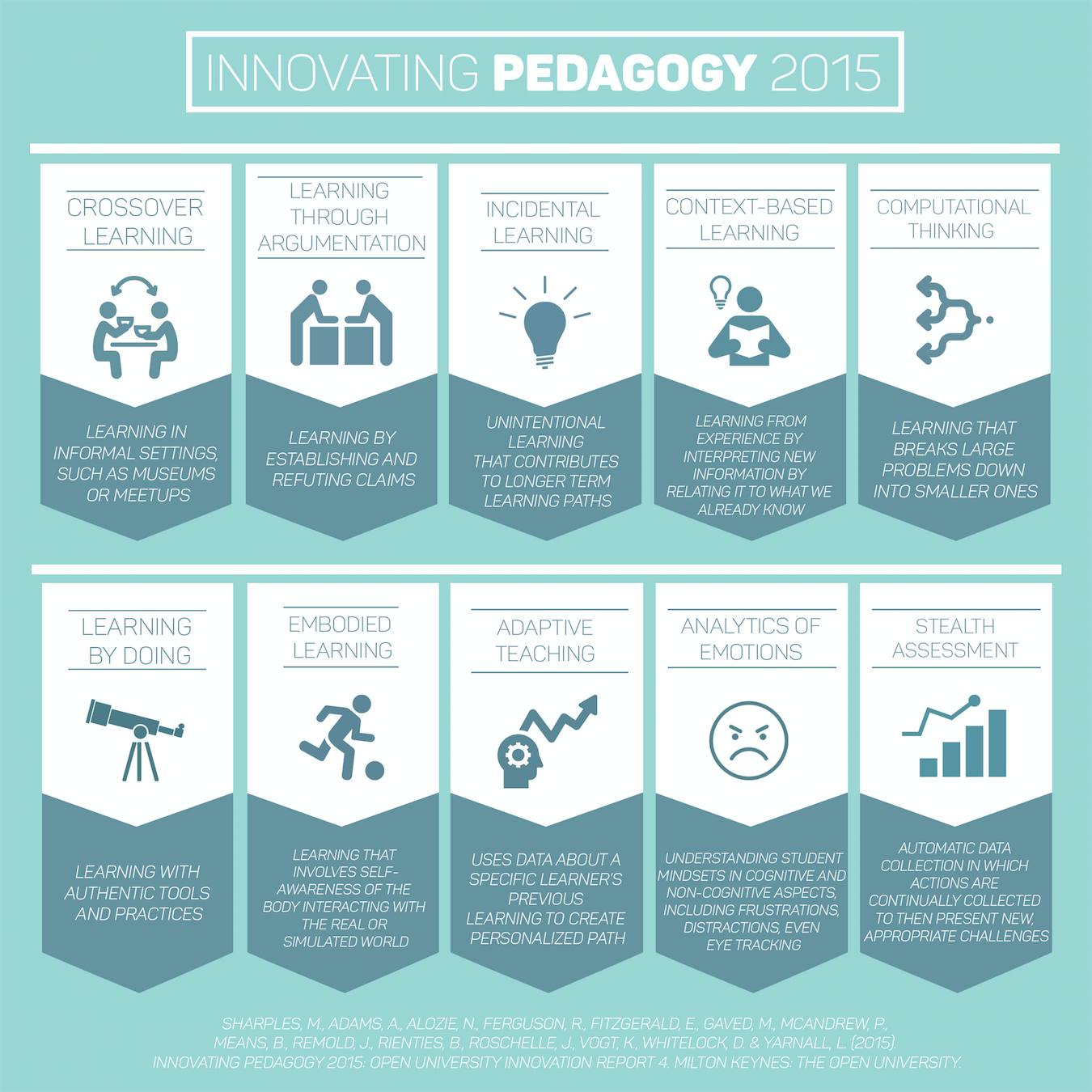Archive of ‘student-centered learning’ category
A Librarian’s Guide to OER in the Maker Space
http://www.slj.com/2015/10/technology/a-librarians-guide-to-oer-in-the-maker-space
OER are teaching, learning, and research resources that reside in the public domain or have been released under an intellectual property license that permits sharing, accessing, repurposing—including for commercial purposes—and collaborating with others. They include educational materials, such as lesson plans, games, textbooks, tests, audio, and video. In addition to being free, these no-cost teaching and learning materials are available online for anyone to use, modify or share with others.This use, reuse, and remixing of instructional materials is a powerful way to gain and share knowledge. Because OER are customizable and flexible, they can be used very effectively to support students to achieve their learning goals.
OER Commons is a digital library where educators can find resources to develop, support and amplify their maker space practices. The site is searchable by subject, grade level or standard. Users can also filter results to include topics, such as activities and labs, games, videos, lesson plans, and interactive tools.
Related blog entry:
https://blog.stcloudstate.edu/ims/2016/02/22/libraries-and-learning/
6 Strategies for Differentiated Instruction in Project-Based Learning
http://www.edutopia.org/blog/differentiated-instruction-strategies-pbl-andrew-miller
1. Differentiate Through Teams
2. Reflection and Goal Setting
3. Mini-Lessons, Centers, and Resources
4. Voice and Choice in Products
5. Differentiate Through Formative Assessments
6. Balance Teamwork and Individual Work
How We Share the World
http://metrocosm.com/how-we-share-the-world/
data visualization of different trends around the world, such as GDP, debt, population etc.
The Housing Value of Every County in the U.S.
A Striking Perspective on New York City Property Values.
The Shape of the US Economy
more interesting maps in this IMS blog:
https://blog.stcloudstate.edu/ims/?s=map&submit=Search
Two Ways to Explore the News Through Maps
interactive map of Europe
John King is trying to repair the Obama administration’s frayed relationship with teachers
https://www.washingtonpost.com/local/education/john-king-is-trying-to-repair-the-obama-administrations-frayed-relationship-with-teachers/2016/02/19/a28b88de-d666-11e5-9823-02b905009f99_story.html
Emma Brown February 20
In one of his first major speeches as acting U.S. secretary of education, John King apologized to teachers for the role that the federal government has played in creating a climate in which teachers feel “attacked and unfairly blamed.”
Race to the Top, abbreviated R2T, RTTT or RTT
https://en.wikipedia.org/wiki/Race_to_the_Top
More on NCLB in this blog:
https://blog.stcloudstate.edu/ims/?s=no+child+left+behind&submit=Search
How Libraries Fit in the Future of Learning
http://www.edtechmagazine.com/k12/article/2016/01/how-libraries-fit-future-learning
Amy Brown, M.Ed. is a K-12 education strategist for CDW·G. January 20, 2016
According to the New Media Consortium’s Horizon Report: 2015 K-12 Edition, schools all over the nation have begun promoting content creation over content consumption.
When evaluating equipment, administrators need to consider how it will work with the space.
More about school media places and the future for information media in academia:
https://blog.stcloudstate.edu/ims/?s=library&submit=Search
related IMS blog entry: https://blog.stcloudstate.edu/ims/2016/02/24/open-educational-resources/
Ten Teaching Trends from the Innovating Pedagogy Report
Ten Teaching Trends from the Innovating Pedagogy Report
The 2015 Innovating Pedagogy Report proposes ten innovations that explore ways of teaching, learning, and assessment for an interactive, engaged world.

Bibliography:
4 Videos That Help Students & Parents Understand Financial Aid
http://www.freetech4teachers.com/2016/02/4-videos-help-students-parents.html
Choosing Financial Aid in a Nutshell from Planet Nutshell on Vimeo.
Borrow Wisely: FAFSA in a Nutshell from Planet Nutshell on Vimeo.
Understanding Federal Student Loans in a Nutshell from Planet Nutshell on Vimeo.
Federal vs. Private Student Loans in a Nutshell from Planet Nutshell on Vimeo.
Should Computer Education Cover More Than Just Coding?
http://www.npr.org/sections/ed/2016/02/15/465467155/should-computer-education-cover-more-than-just-coding
“We now need to train everybody to understand the basics of computer science,” she says, “and I don’t equate it to just coding. I equate it to principles of thinking.”
There are ways of approaching problems, for example, or of structuring data, that help students program more effectively and more thoughtfully.
more on coding in this IMS blog:
https://blog.stcloudstate.edu/ims/?s=coding&submit=Search
Zaghab, R. W., & Beckenholdt, P. (2014, June). Textbook-Free Learning: A Framework for Critical Analysis. In Proceedings of the 9th International Conference on e-Learning: ICEL 2014 (p. 190). Academic Conferences Limited.
https://books.google.com/books?hl=en&lr=&id=ElMJBAAAQBAJ&oi=fnd&pg=PA190&dq=textbook-free+Zaghab&ots=IDuokCrhcq&sig=hpg16tUnRLP00CgHJo9z7fY8uqM#v=onepage&q=textbook-free%20Zaghab&f=false
short link: http://scsu.mn/1XlEcLE
Abstract:
Textbooks are losing relevance in the higher education classrooms partially due to the high costs and slow speed of textbook publication in the midst of the growing supply of open electronic resources. With trends toward online course delivery, more colleges are considered online resources as a matter of policy without an adequate framework for decision making during times of rapid transformation. The purpose of this paper is to improve the balance and deliberateness of university decision making in considering Textbook-free approaches. The proposed line of inquiry responds to a critical and timely question: Under what conditions might Textbook-free online course resources offer the best approach to a quality higher education learning experience? A three-part analytical framework is proposed to consider resource quality, institutional commitments, and external trends. By distilling the literature, the authors propose: 1) universal quality indicators for online and open education resource selection for a course or classroom; 2) institutional factors and resources that impact the quality of the Textbook-free approach; and 3) the selection of instructional resources based on environmental factors and transformational change influencing fields of study. Punctuated equilibrium theory helps to inform the framework. With the assumption that classrooms prepare students for the world of work, the proposed framework identifies challenges to the identification of educational resources for fields undergoing disruptive change.
